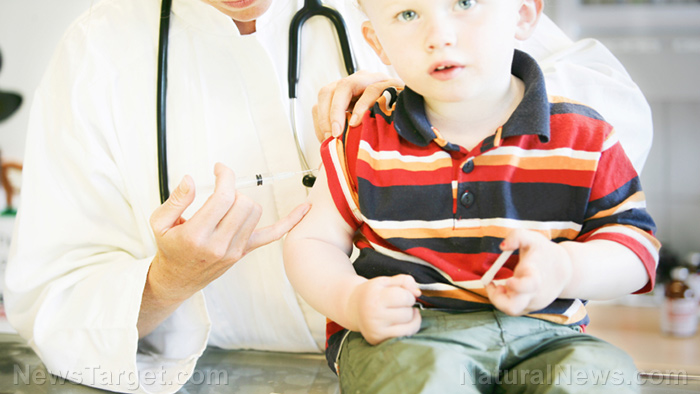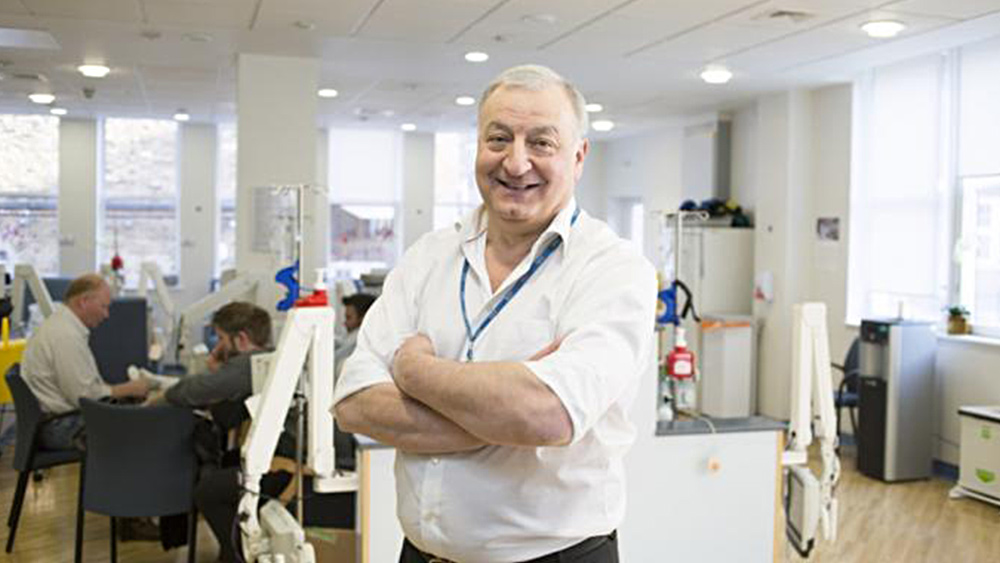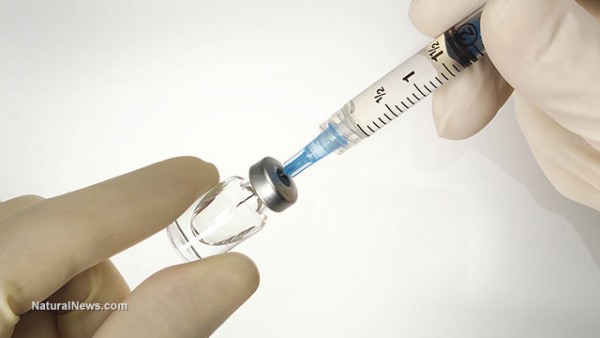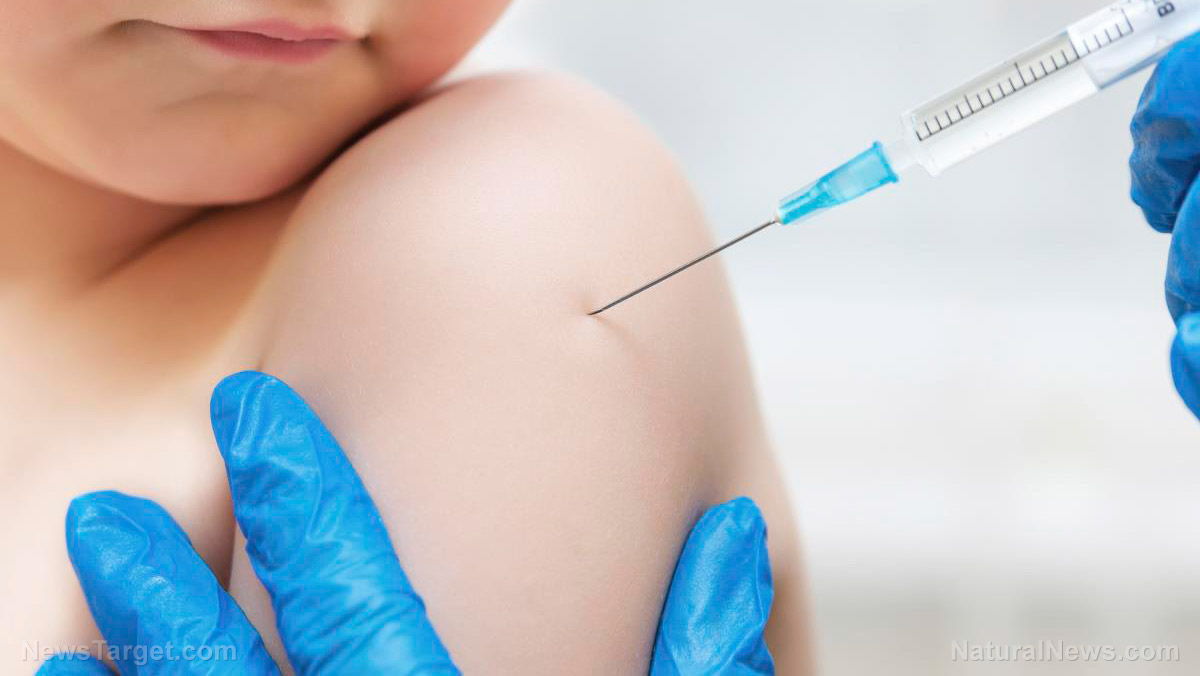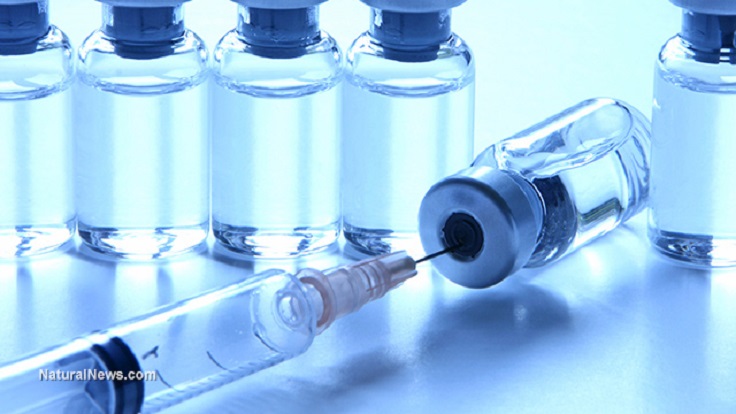Autism begins during pregnancy, may be caused by mercury in dental amalgam and Thimerosal in flu shots, warns science paper
01/17/2019 / By Earl Garcia
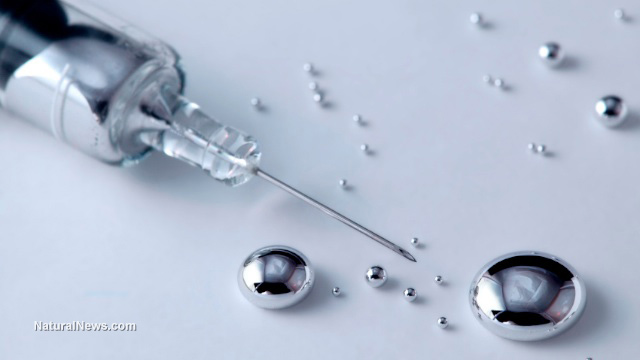
The scientific community has been raising safety concerns about mercury-based products for years, but the use of this toxic chemical persists despite their dire warnings. What’s more alarming is that this hazardous compound is deliberately injected into the human body by way of vaccination. Thimerosal, a mercury-based preservative added to flu vaccine vials, has been linked to the onset of autism spectrum disorder in children.
The thimerosal-autism link by the numbers
A study published in the journal Toxicological & Environmental Chemistry showed a correlation between thimerosal and autism-like neurotoxicity in young patients. Researchers used three in vitro human neuronal and fetal-cell models to examine the thimerosal-induced cellular damage. Exposure to thimerosal during the fetal and early infant stages induced cytotoxic effects that are similar to those observed in patients with autism, the study revealed. Data also showed that mercury exposure resulted in reduced oxidative-reduction activity, cellular degeneration, concentration and time-dependent mitochondrial damage and subsequent cell death in the neuronal and fetal-cell models.
Research published in Medical Science Monitor also revealed a dose-dependent correlation between the mercury content in thimerosal and the ASD onset in children. Study authors have since then called for the exclusion of thimerosal from all vaccines.
Another study revealed that mercury and thimerosal exposure led to a 50 percent decrease in methionine synthase (MS). A normally functioning MS promotes brain development, attention and glutathione production. Glutathione is an antioxidative and detoxifying compound. Results published in the journal Neuro Endocrinology Letters stated that children with autism have been shown to have significantly lower glutathione levels.
Back-to-back studies in 2003 and 2004 by a single research team proved a correlation between thimerosal and autism onset in children. In the 2003 study, whose findings appear in the journal Experimental Biology and Medicine, researchers examined the Vaccine Adverse Events Reporting System database and found a significant increase in incident rates of autism, speech disorders and mental retardation following getting a vaccine with thimerasol as an ingredient.
The 2004 study published in the International Journal of Toxicology further establishes this link, noting that children who received doses of thimerosal-containing vaccines were more likely to develop autism, speech disorders and mental retardation than who were given thimerosal-free vaccines.
Mom’s dental amalgams may trigger child’s autism
Mercury found in dental amalgams has also been singled out as a culprit in the onset of ASD in children. A 2009 study published in Acta Neurobiologiae Experimentalis found that children born to mothers with six or more mercury-containing dental fillings were more than three times as likely to develop autism.
“Furthermore, the risk of increasing autism severity became significantly manifest among those study subjects with six or more maternal dental amalgams during pregnancy in comparison to those study subjects with five or fewer maternal dental amalgams during pregnancy,” researchers said.
Another study found that mothers of children with autism were more likely to have dental amalgam restorations than those of healthier children. The results suggest that “…high Hg [mercury] levels in children with ASD may relate to the increased exposure to Hg from maternal dental amalgam during pregnancy and lactation,” researchers noted. Data also showed that children with ASD exhibited higher levels of mercury toxicity than their healthier siblings and peers. Subsequently, children with the highest levels of mercury exposure displayed the most severe symptoms of autism.
Researchers at the Arizona State University found that children with autism had higher levels of heavy metals in their bloodstream compared with their healthier peers. Study data, published in the journal Biological Trace Elements Research, showed that children with ASD had 74 percent higher urinary lead levels, 77 percent higher thallium levels and 115 percent higher tin levels compared with the controls.
Sources include:
Tagged Under: autism, Dental Amalgam, Flu shots, Thimerosal, toxic ingredients, vaccines






